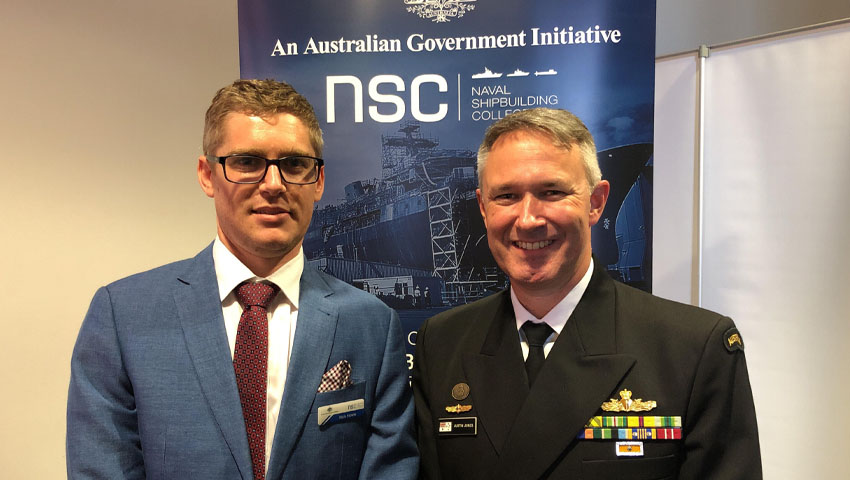More than 300 Australian and international experts have converged on Geelong this week for the inaugural Navy, Industry and Academia Training Conference hosted by the Naval Shipbuilding College and Deakin University.
The inaugural Navy, Industry and Academia Training Conference brings together training professionals and thought leaders from across Defence, industry, education and training providers to create innovative workforce development solutions.
Participants engaged in big idea pitching and presentations for innovative approaches to training and practical activities focused on learning theory, training delivery and the use of training technology.
The two day NIA Conference was held at Deakin University, Geelong Waterfront Campus on May 28 and 29.
Rear Admiral Peter Quinn, Head Navy Capability, who opened the event, said the $90 billion investment into strengthening Australia’s future fleet was more than producing some of the world’s most advanced vessels.
"The level of collaboration between academia, Navy and industry will be the barometer by which the success of the Naval Shipbuilding Enterprise will be measured. The effectiveness of the Royal Australian Navy will be reliant on a highly skilled and innovative workforce to build and sustain our new naval vessels," RADM Quinn said.
Naval Shipbuilding College training solutions manager Nick Howie said NIA examined the college’s integral role in supporting the Naval Shipbuilding Enterprise.
"The rapid technological advancements in the construction and operation of ships and submarines will provide new opportunities for Australia’s naval shipbuilding industry," Howie explained.
"Australia is positioned to lead the world in the integration of new technologies into the next-generation fleet of the Royal Australian Navy. The continuous Naval Shipbuilding Plan will drive technology and innovation in Australian industry throughout the 21st century."
The college was established in April 2018 by the Australian government to identify and support the development of a skilled national workforce that would be required to deliver the $90 billion Naval Shipbuilding Enterprise.
A workforce register has been established to support students, workers from adjacent industries or career changers to up-skill through education and training providers. It also helps candidates seize the professional career opportunities available in naval shipbuilding by connecting them with future employers.
Based at the Osborne Naval Shipyards in South Australia, the college has a national focus on co-ordinating collaboration between industry, education and training sectors to develop endorsed programs that will deliver a skilled and capable shipbuilding workforce through existing higher education and vocational providers in Australia.

 Login
Login







